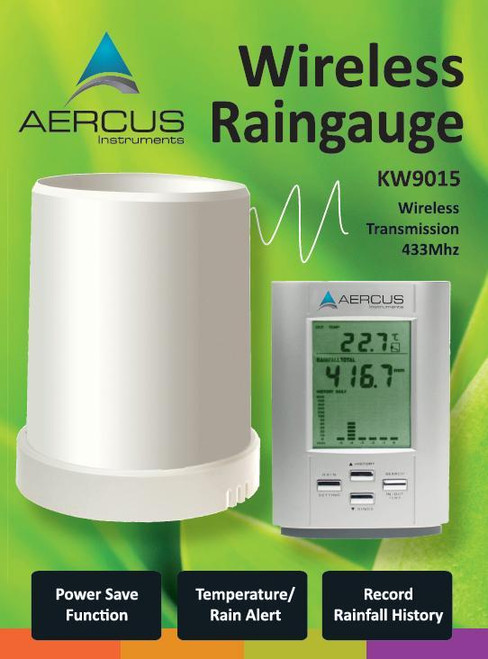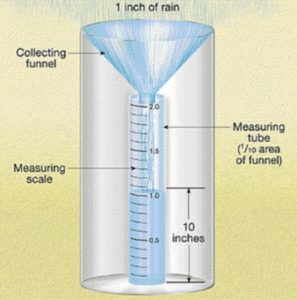Rain Gauge Buying Guide: What You Need to Know for Optimal Efficiency
Wiki Article
Unveiling the Scientific Research Behind Rain Evaluates: Exactly How These Gadgets Play an Essential Function in Climate Research and Ecological Tracking
Rain gauges, relatively simple gadgets, hold an extensive significance in the world of environment research study and ecological surveillance. These humble instruments quietly accumulate one of nature's most crucial components-- rainfall. Yet, behind their unpretentious facade exists a complicated science that is important for comprehending the characteristics of our environment. As we peel off back the layers of this clinical veil surrounding rain gauges, we reveal a world where precision, information precision, and careful observation merge to reveal a much deeper understanding of our changing environment and its influence on the world.Relevance of Rainfall Scales
Rain evaluates play an indispensable function in surveillance and measuring precipitation levels, giving important data for environment research study and analysis. These gadgets are basic in evaluating the quantity of rains that happens in a particular location over a certain period. By gauging and collecting rain, rain determines deal beneficial understandings into the circulation and intensity of rainfall, helping meteorologists, hydrologists, and climatologists in understanding climate patterns and fads.
Additionally, lasting data gathered from rain evaluates aids in evaluating environment adjustment effects and patterns, adding significantly to scientific research study and decision-making procedures. In significance, rainfall evaluates offer as important tools in the field of weather forecasting and environmental scientific research, playing a crucial duty in advancing our understanding of weather and environment dynamics.
Sorts Of Rain Gauges

Performance and Procedure
In the realm of environment research study and meteorological research studies, the effectiveness of rain gauges hinge on their detailed functionality and exact functional mechanisms. Rain evaluates are created to accurately determine the amount of precipitation that falls over a certain area throughout a set duration. These gadgets commonly are composed of a channel that gathers rainwater and channels it right into a measuring tube. The gauging tube is noted with calibrated measurements that enable the exact quantification of rains.The performance of rainfall assesses is based upon the concept of measuring and gathering rainwater in a standardized way. This accumulated information is important for comprehending regional weather patterns, tracking long-term environment trends, and examining environmental effects. To ensure exact measurements, rainfall assesses demand to be purposefully placed in open locations far from obstructions such as buildings or trees visit the website that could hinder the collection process.
The operational element of rainfall determines involves normal maintenance to stop debris accumulation, calibration checks to preserve measurement accuracy, and information videotaping for evaluation (rain gauge). Generally, the functionality and find this operation of rainfall gauges are vital for collecting trustworthy precipitation information vital to climate study and ecological monitoring
Function in Environment Study
Provided the essential value of exact precipitation measurements in understanding weather condition patterns and environmental influences, the function of rain gauges in environment research is essential. Rainfall assesses offer vital data for climate research study by quantifying the quantity of precipitation that tips over a details location during a provided duration. This information is important for checking long-term fads in precipitation patterns, analyzing the impact of environment adjustment on rainfall circulation, and boosting environment versions.
Climate researchers utilize data collected from rainfall assesses to evaluate variations in precipitation levels, recognize regional climate patterns, and examine the effectiveness of water resource administration approaches. By contrasting historic rainfall information with present measurements, researchers can discover shifts in rainfall patterns, such as adjustments in the regularity or intensity of rains events. This information is vital for understanding exactly how environment modification is influencing precipitation characteristics and can aid policymakers make informed decisions relating to adjustment and reduction approaches.
Applications in Environmental Monitoring

In flooding forecasting, rainfall gauge data helps to track rains intensity and circulation, permitting authorities to provide prompt cautions and take necessary measures to mitigate flood dangers (rain gauge). Dry spell monitoring relies upon rainfall scale information to assess dampness levels in the dirt and track precipitation deficiencies, helping in the identification of drought-prone areas and the execution of drought reaction techniques
Additionally, rainfall scale information plays a crucial role in water source management by providing info on water availability and usage trends. This information is utilized to make educated decisions relating to water allocation, more preservation procedures, and sustainable water resource planning. Furthermore, in agriculture, rain scale data aids farmers in enhancing irrigation schedules, crop selection, and total farm administration practices based upon local precipitation patterns. Generally, rain evaluates are essential tools in environmental monitoring, providing beneficial insights that contribute to educated decision-making and lasting resource administration.
Final Thought
In verdict, rainfall assesses are essential devices for determining rainfall, providing useful information for climate research and environmental monitoring. With different types and functionalities, rainfall evaluates play an essential role in recognizing rainfall patterns and their influence on the atmosphere. By precisely gauging rains, these devices add to the development of clinical knowledge and help in making informed choices relevant to water source monitoring and calamity preparedness.Rainfall gauges play an important function in monitoring and determining precipitation levels, supplying vital information for environment research study and evaluation. The basic rainfall scale, known as the "tipping pail" scale, is one of the most typically made use of gadgets. Ultrasonic rainfall assesses usage noise waves to detect the visibility of rain, supplying real-time information on rainfall levels.Climate scientists make use of data collected from rainfall assesses to examine variants in precipitation levels, determine regional environment fads, and review the efficiency of water resource management techniques.In final thought, rainfall assesses are essential devices for gauging rainfall, supplying useful information for environment research study and ecological tracking.
Report this wiki page